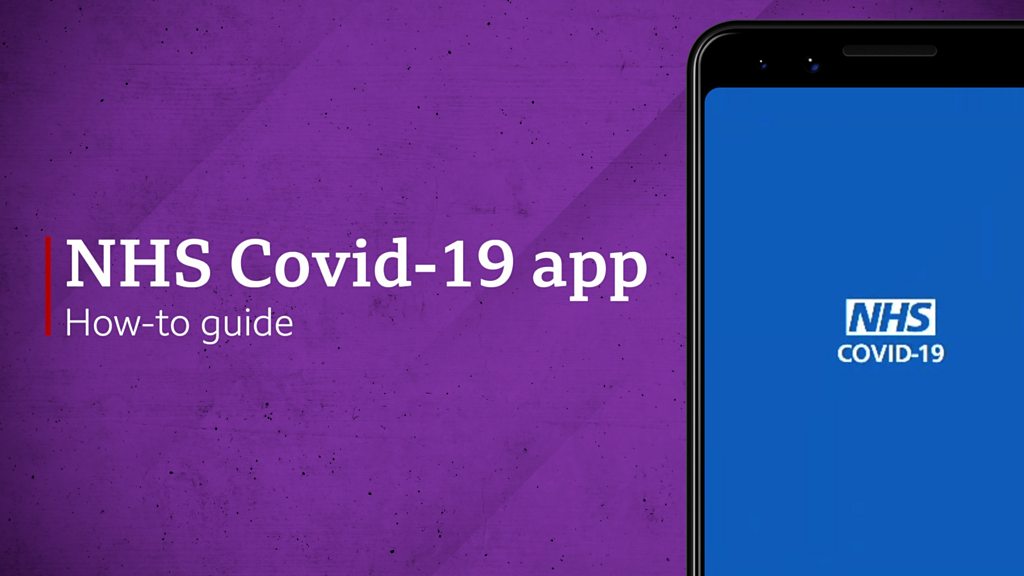NHS Covid-19 app sensitivity to be reviewed
NHS Covid-19 #NHSCovid-19

9 July 2021, 04:51 BST
Updated 1 hour ago
Image source, Getty Images
The NHS Covid contact tracing app used in England and Wales could be made less sensitive in order to reduce the number of people asked to self-isolate.
The app detects the distance between users and the length of time spent in close proximity – currently 2m or less and more than 15 minutes.
A source close to Health Secretary Sajid Javid said he was considering changes, amid a huge rise in alerts.
The Department of Health said the app “is, and always has been advisory”.
The system allows people who test positive to anonymously share their test result, triggering alerts for those detected as close contacts in the days before the test.
Under current rules, those who receive an alert are asked to stay at home for up to 10 days.
Dr Jenny Harries, the head of the new UK Health Security Agency, told MPs on Thursday that she was “aware that people are choosing not to use the app” when asked about concerns people are deleting it to avoid being “pinged”.
“We are a seeing rise in cases so this is not an inconvenience, it’s actually to alert people to the fact that they have been in close contact and that they may be at risk of being infected themselves and passing that infection on to other people,” she said.
Hinting at a change, she added that there was “work ongoing at the moment because it is entirely possible to tune the app to ensure that it is appropriate to the risk”.
The source close to Mr Javid told the BBC “we are looking at the sensitivity of the app” and pointed out the sensitivity had been changed before.
But they did not say exactly what would change. At present, if two phones running the app are close for long enough, and one of the two users later shares a positive coronavirus test via the app, then the other will receive an alert.
You can also use the app to “check-in” to venues so you can be notified of any positive cases you may have encountered there, although the requirement to check-in will be lifted in England when lockdown rules ease further on 19 July.
Just 496 venue alerts – which use the check-in data to alert people to potential contact with a positive case – were sent between 24 June and 30 June.
The NHS Covid-19 app is used in England and Wales. Wales, Scotland and Northern Ireland have their own powers to set coronavirus regulations and separate test-and-trace programmes.
To play this content, please enable JavaScript, or try a different browser
Video caption,
The NHS Covid-19 app explained
In the last week of June, 360,000 alerts were sent through the NHS Covid app to people England and Wales, a rise of more than 60% and the highest weekly figure so far in 2021.
The next highest figure, the week previously, was 219,000. As recently as the end of May, it was 16,000 a week, data showed.
Between 24 June and 30 June, 281,500 people were identified as coming into close contact with someone who had tested positive, the highest number since the end of January.
A BBC analysis has estimated 4.5m people could be asked to self-isolate between this week and 16 August, as the number of infections continues to rise.
Chancellor Rishi Sunak told the BBC on Thursday that the government was considering a “more proportionate and balanced approach” to isolation for Covid contacts.
He acknowledged there was “frustration” at how the NHS contact tracing app could continue to order the double jabbed to isolate.
Meanwhile, Prime Minister Boris Johnson has said the country was “moving to a system of testing rather than self-isolation”.
“I rely on the NHS app, as many people do,” he said.
“I know how difficult it has been for people and I’m sorry for the hassle that people experienced as a result of this – it is coming to an end.”
Most Covid rules in England are due to end on 19 July at the final stage of the country’s roadmap out of lockdown, with confirmation on 12 July after a review of the latest data.
The NHS app is one part of the NHS Test and Trace programme, which has a £37bn budget and also includes national testing and contact tracing infrastructure.
A further 32,551 new coronavirus cases were recorded on Thursday, alongside another 35 deaths within 28 days of a positive test.
